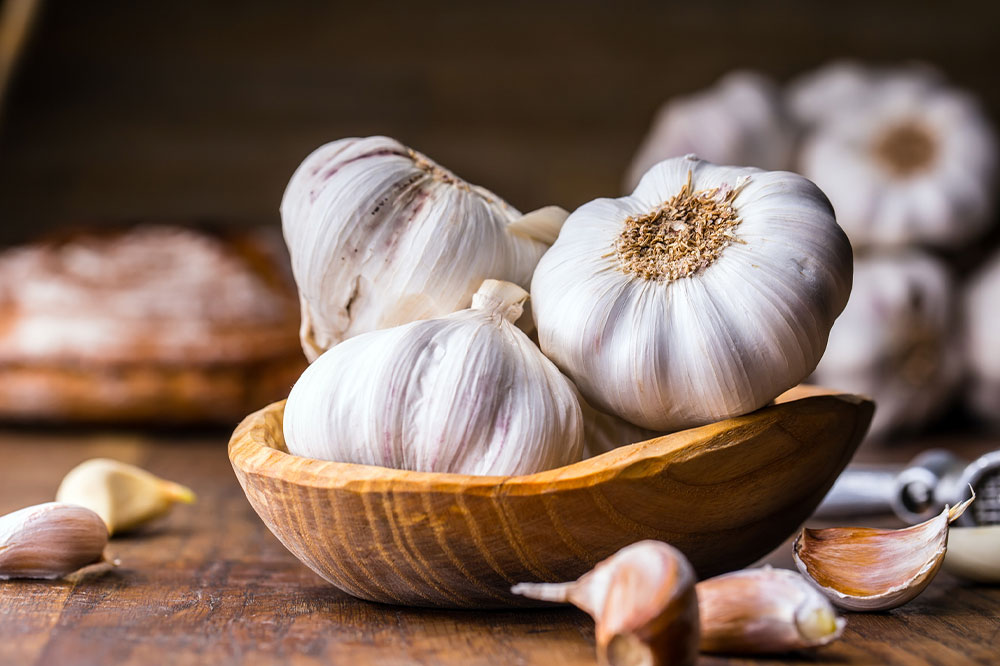According to reports, one in every five deaths in the country is due to cancer; that said, technological advancements in healthcare have increased cancer survival rates. Early diagnosis and a systematic treatment course are essential for cancer recovery. In terms of prevention, genetic testing can help understand one’s odds of developing the disease. Moreover, besides following a healthy lifestyle, including some herbs and spices in one’s meals can help with cancer prevention:
Black pepper
In addition to spicing up one’s soups and salads, black pepper can help lower one’s risk of cancer. This pungent condiment contains a molecule called piperine, which brings about its delectable flavor and has anti-cancer properties. Some studies have also found that black pepper can inhibit the development of colorectal cancer cells.
Ginger
Due to its anti-inflammatory properties, ginger has been widely recommended as the magic ingredient to relieve colds, flu, and digestive problems, among others. Moreover, studies have shown that gingerols present in ginger have a cytotoxic effect against breast cancer cell lines. It has also been found effective in protecting against various other types of cancer, such as pancreatic, gastric, liver, and colorectal cancers.
Basil
The American Institute for Cancer Research (AICR) suggests that basil, which is packed with flavonoids, may have a protective effect against cancer. It also contains antioxidants and bioactive compounds, which can help with slowing down the growth of cancerous tumors. The leaves of this flavorful herb may be consumed directly or seasoned in a variety of foods, from stir fries and soups to smoothies and breads.
Rosemary
Rosemary is widely used as a seasoning ingredient in several delicacies, including gnocchi, macaroni and cheese, fondue, marinades, and stir-fry preparations. Besides having a mild yet enticing sweet flavor, this aromatic herb is high in carnosol, a phytochemical proven to slow cancer growth. It also has antioxidant properties and can boost the immune system considerably.
Garlic
Reports by AICR have found that garlic can reduce one’s risk of developing colorectal cancer. It also has several antioxidant properties that boost immunity and help the body fight cancer cells. Studies have shown that regular intake of garlic can reduce one’s susceptibility to breast, lung, colon, and uterine cancer. One may add crushed or finely chopped garlic to soups, stir-fries, butters, and breads.
Cardamom
As per research reports, cardamom powder can increase the activity of certain cancer-fighting enzymes in the body. Besides helping with cancer prevention, it acts as a chemotherapeutic agent, increasing the effectiveness of chemotherapy and other cancer interventions. A cup of cardamom tea can soothe the body and ensure protection against cancer.
Cinnamon
This flavorful condiment has been shown to reduce the growth of cancer cells and the development of blood vessels in cancerous tumors. It contains several phytonutrients with cytotoxic properties, which help destroy certain types of cancer cells. Cinnamon powder is often used in cakes, cookies, etc.; it may also be sprinkled in shakes and smoothies for an irresistible fragrance and subtle yet rich taste. Cinnamon tea is another way of including this spice.
Cayenne pepper
Cayenne pepper contains capsaicin, an antioxidant that helps with the destruction of cancer cells. It is particularly effective in fighting prostate cancer. A pinch of cayenne pepper suffices to enhance the flavor of a preparation considerably. One may also sprinkle cayenne pepper over lemonade, scrambled eggs, etc.
Clove
Cloves are rich in triterpenes, such as betulinic acid, which serve as chemopreventive agents against breast cancer. They inhibit the molecules promoting the onset of cancer. One may sprinkle crushed or powder cloves in soups, smoothies, gravies, etc.
Oregano
This spice does more than add flavor to pizzas, noodles, and pasta. Carvacrol, a molecule found in oregano, is a natural disinfectant that curbs the growth of cancer cells. Oregano may also help regulate the formation of heterocyclic amines (HCAs), which increase cancer risk.
Turmeric
This bright-yellow spice single-handedly enhances the visual appeal of foods. However, its usefulness is not limited to enhancing food esthetics. Curcumin, the compound that gives turmeric its color, is a powerful antioxidant that slows the growth of cancer cells in the body. Turmeric destroys the blood vessels that contribute to the development of cancer cells, increasing the effectiveness of chemotherapy and other cancer treatments. Besides adding turmeric to stir-fries, gravies, soups, smoothies, etc., one may also have a cup of warm turmeric milk, which can boost immunity considerably.
Caraway
According to some studies, caraway or meridian fennel is an antioxidant that can control the growth of cancer. It protects the body from free radicals and can help with the prevention of different types of cancer. In addition, it helps with digestion and may be consumed directly after meals. One may also add fennel powder in stir-fries, soups, etc., for enhanced flavor.
In addition to incorporating these herbs and spices into one’s meal plan, one should have wholesome meals rich in all the essential nutrients, including carbohydrates, proteins, healthy fats, vitamins, and minerals. Moreover, processed foods and deep-fried foods contain trans fats, which can increase one’s susceptibility to cancer and lifestyle diseases like diabetes and cholesterol. Thus, it is important to avoid such foods for cancer prevention.
In general, an active lifestyle can considerably reduce the risk of developing cancer. A study found that leisure-time physical activity was linked to 23% reduced risk of kidney cancer. It is a good idea to incorporate different forms of workouts, including aerobics, cardio, yoga, pilates, and strength training, into one’s exercise routine for a healthy body and reduced risk of cancers. In addition, staying hydrated and swapping sugary beverages with fresh fruit juices, smoothies, soups, etc. can help with physical well-being and cancer prevention. In general, one’s meals should comprise fruits and vegetables (particularly leafy greens and cruciferous vegetables), eggs, poultry, lean meats, etc., which can replenish the body with adequate nutrients and boost immunity to fight cancer cells.



